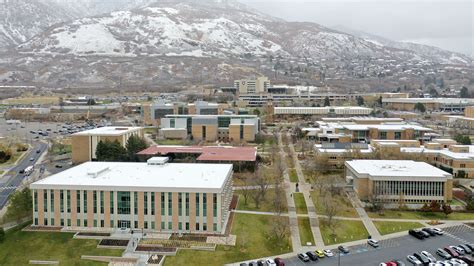Understanding the Need for On-Campus Housing: A Growing Demand
With the ever-increasing enrollment figures at Weber State University, the demand for on-campus housing has been steadily rising. Students recognize the numerous advantages associated with living on campus, ranging from enhanced academic support to the unparalleled convenience of proximity to campus amenities.

Current On-Campus Student Population
As of the fall 2023 semester, approximately 2,000 students resided in the university’s on-campus residence halls, constituting roughly 12% of the total student body. This figure represents a gradual uptick in the proportion of students opting for on-campus living, reflecting the growing recognition of its benefits.
Projected Growth in On-Campus Population
Weber State University anticipates a continued surge in the number of students seeking on-campus accommodations. The university is proactively addressing this growing demand by investing in new construction projects and exploring innovative housing solutions.
Benefits of On-Campus Living
Academic Excellence: On-campus residents benefit from close proximity to faculty, academic resources, and support services, fostering an environment conducive to academic success.
Community Building: Living in a shared space with peers creates a sense of community, promotes socialization, and enhances interpersonal skills.
Time Management: Eliminating the commute to campus allows students to allocate more time to studying, extracurricular activities, and personal growth.
Amenities and Convenience: On-campus housing provides access to a range of amenities such as dining halls, laundry facilities, and fitness centers, ensuring a comfortable and convenient living experience.
Types of On-Campus Accommodation
Weber State University offers a variety of on-campus housing options to cater to the diverse needs of its students.
Traditional Residence Halls: These shared living spaces house multiple students in individual rooms, providing a traditional college experience.
Apartment-Style Living: Apartments offer private bedrooms and bathrooms, along with shared common areas, fostering a sense of independence while maintaining a communal atmosphere.
Cost of On-Campus Housing
The cost of on-campus housing varies depending on the type of accommodation, the number of roommates, and the length of the lease. Students are encouraged to explore the university’s website for detailed pricing information.
Tips for Securing On-Campus Housing
Apply Early: Submit your housing application as soon as possible to increase your chances of securing a spot in your preferred accommodation.
Consider Multiple Options: Research and compare the different types of on-campus housing to find the best fit for your needs and budget.
Connect with a Housing Advisor: The university’s housing advisors can provide guidance and support throughout the application process.
Explore Financial Aid Options: Financial aid may be available to assist with the cost of on-campus housing. Explore your options and apply accordingly.
Future of On-Campus Housing at Weber State University
Weber State University is committed to meeting the evolving needs of its students by continuously evaluating and improving its on-campus housing facilities and services. The university is dedicated to creating an inclusive and dynamic living-learning environment that empowers students to achieve both academic and personal success.
Tables for Additional Insights
Table 1: On-Campus Student Population Over Time
| Year | On-Campus Students | Percentage of Total Student Body |
|---|---|---|
| 2018 | 1,500 | 10% |
| 2019 | 1,700 | 11% |
| 2020 | 1,800 | 12% |
| 2021 | 1,900 | 12% |
| 2022 | 2,000 | 12% |
Table 2: Types of On-Campus Housing
| Type of Accommodation | Description |
|---|---|
| Traditional Residence Halls | Shared rooms with communal bathrooms |
| Apartment-Style Living | Private bedrooms and bathrooms, shared common areas |
| Theme Houses | Living spaces organized around specific interests or majors |
| Living-Learning Communities | Housing units designed to foster academic or personal growth |
Table 3: Cost of On-Campus Housing (Approximate)
| Type of Accommodation | Annual Cost |
|---|---|
| Traditional Residence Halls (Double Occupancy) | $5,000-$6,000 |
| Traditional Residence Halls (Single Occupancy) | $7,000-$8,000 |
| Apartment-Style Living (Shared) | $6,000-$7,000 |
| Apartment-Style Living (Private) | $8,000-$9,000 |
Table 4: Tips for Securing On-Campus Housing
| Tip | Description |
|---|---|
| Apply Early | Submit your application as soon as possible to increase your chances of securing a spot in your preferred accommodation. |
| Consider Multiple Options | Research and compare the different types of on-campus housing to find the best fit for your needs and budget. |
| Connect with a Housing Advisor | The university’s housing advisors can provide guidance and support throughout the application process. |
| Explore Financial Aid Options | Financial aid may be available to assist with the cost of on-campus housing. Explore your options and apply accordingly. |
